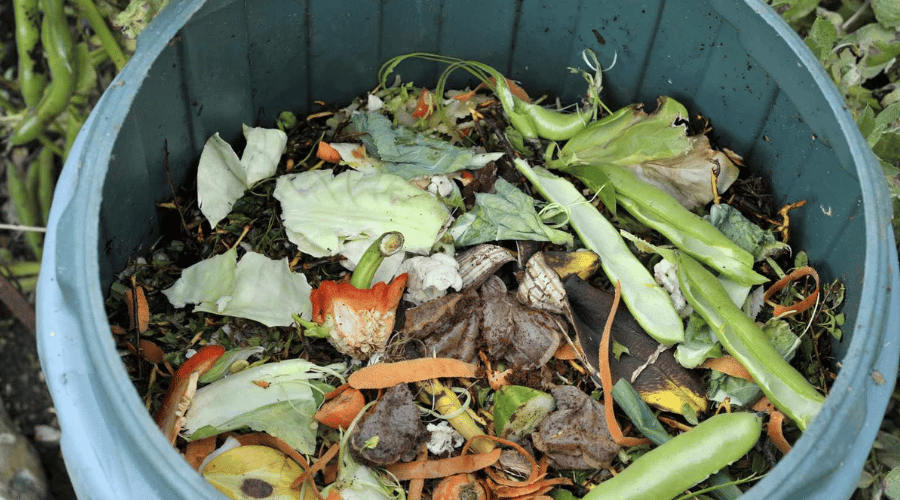
Home Composting Tips For Your Garden
Did you know that you can reduce your waste by 40% simply by composting? Not only is this essential for creating a more sustainable environment, but your garden will love you for it! Composting is a simple yet effective way to divert organic waste from landfill, reduce greenhouse gas emissions, and enrich our soil for healthier plant growth.
What you need
Compost bin
There are soooo many different types of compost bins you can buy - indoor/outdoor, big/small, electric/manual, stationary/rotating, and the list goes on. I opted for a trusty in-ground 150L compost bin from Bunnings and have this placed in a shady corner under the lemon tree.
Kitchen caddy
We use our City of Vincent FOGO kitchen caddy, but you can find these everywhere. This one from IKEA is only $9! Plus, you'll need to line it with a compostable bag.
Compost mixer
The Tumbleweed Compost Mate Tool works great to mix your compost.
Compost conditioner
You’ll also need this to help balance pH levels.
Plus, the City of Vincent offers subsidised composting and worm farming equipment for local residents (wish we’d known before buying ours!).
What to do
1. Collect your food scraps
To minimise trips to the compost bin, I keep a kitchen caddy under the sink, lined with a compostable bag. I empty it into the compost once full which is about twice a week. You can add almost anything from banana peels to egg shells, just avoid adding meat, dairy and animal faeces as these can attract pests and slow down the decomposition process.
2. Build your compost
Layer your compost bin alternating between greens (food waste and grass clippings which are nitrogen-rich materials) and browns (dry leaves and paper which are carbon-rich materials). Aim for a ratio of about three parts browns to one part greens. This balance ensures that your compost has enough carbon to maintain structure and aeration, while the nitrogen provides the necessary nutrients for decomposition.
3. Mix it in
Using your compost mixer, integrate the greens with the browns, and aerate the compost. You should do this every time new scraps are added. By aerating the compost, you introduce more oxygen, which stimulates the activity of aerobic bacteria and accelerates the breakdown of organic matter.
4. Keep it moist
Water your compost pile regularly to maintain moisture levels. A well-hydrated compost pile will decompose more efficiently and produce nutrient-rich compost in less time.
5. Apply a compost conditioner
Add a sprinkle of this on once a week to effectively neutralise the acidity of your compost and balance pH levels, which helps break down your scraps quicker. It also promotes healthy soil bacteria to reduce odours and pest infestations.
6. Harvesting your compost
After about three months of regular maintenance, your compost will be ready to harvest. It should be dark, crumbly, and earthy-smelling - a sign that it's rich in nutrients and ready to be fed to your garden beds. Spread the compost evenly over your soil surface or mix it into existing soil to improve its fertility and structure - perfect for veggie gardens! Watch Clarence's video guide to veggie garden planting at the link here.
Happy composting!
Clarence xx
